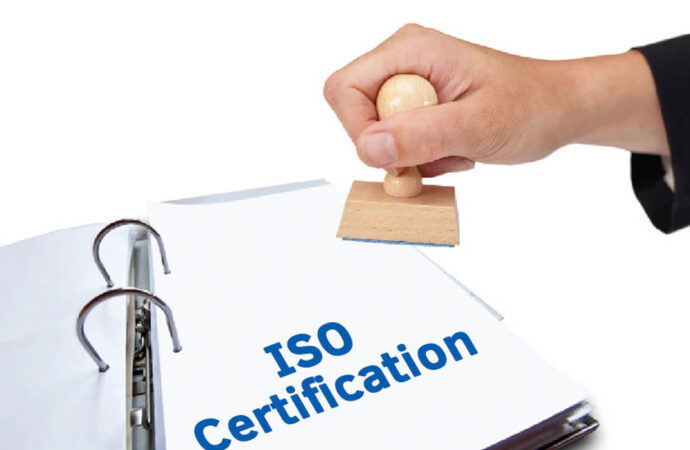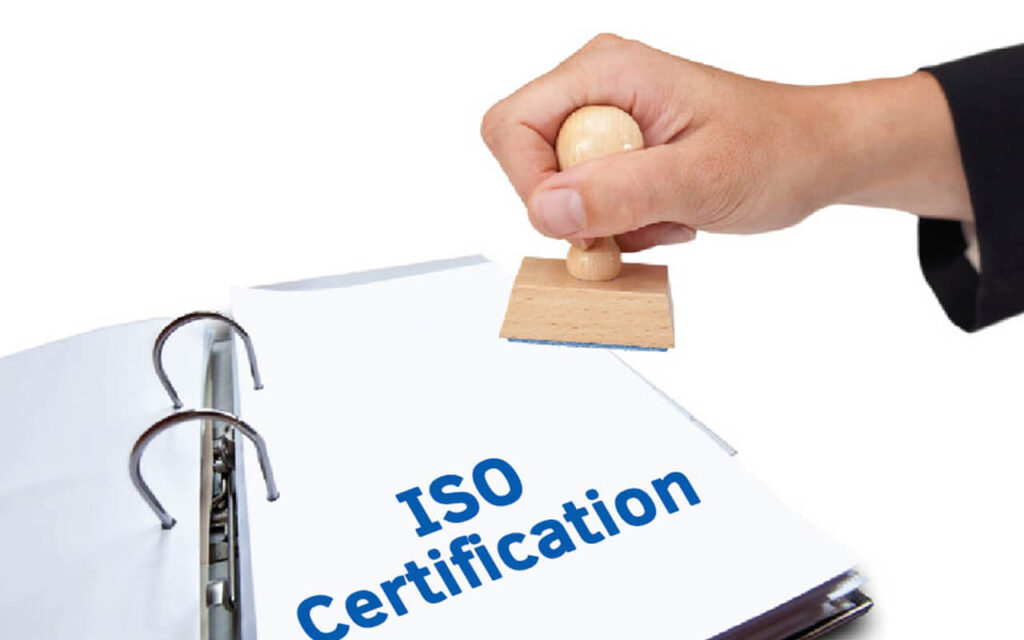Additional ISO Certifications We Offer in El Paso, Texas (TX)
Contact Us

There’s a long list of standards, regulations, and requirements every organization in El Paso, Texas, needs to fulfill in order to be the best and continue operating. Starting with generic ones such as ISO 9001. But what makes them so important?
First, regulations are mandatory and established by the law, which makes them pretty clear why it is necessary to fulfill all of them. However, for ISO standards, most business owners have doubts about why they would need to focus on them and even implement others that are not mandatory. Everything is about establishing, maintaining, and improving management systems in a company and other aspects. In this way, the company is able to demonstrate its ability to meet what it promises: deliver high-quality products or services. Also, many standards focus on processes and areas of the organization that aim to help external elements such as the environment itself.
There’s a lot to know and understand about standards but one thing is for sure: you need to implement them and it is for the best. At IQC The ISO Pros, we have made sure to include as many ISOs as possible in which we can train and assist you and if you wish for it, we can implement it for you. You can count on us for generic and specific standards that are required in your business or if you just decide to go for them.

In what standards can we help you with?
We have made sure to focus on the most relevant and mandatory ones for anyone to be able to obtain its certification. At the same time, we have included many that focus on other aspects of the company and not only its management systems. Therefore, you will find several ISOs below, starting with the most requested ones:
- ISO 9001.
It’s the generic quality management system standard for any company in any industry, which is mandatory and needs to be implemented to ensure the organization meets the customers’ needs with its products and services.
- Automotive IATF 16949.
Focused on the quality management system as well but for automotive companies involved in the supply chain in this industry.
- Medical Devices ISO 13485.
Provides all the guidelines to guarantee the quality of medical devices and ensure they are perfect to fulfill customer satisfaction by having control over the processes in the production.
- Aerospace AS9100.
Sets the requirements to meet for the QMS of manufacturers, designers, and providers of parts and pieces for vehicles or items in the aerospace industry.
- Counterfeits AS6081.
In order to prevent fraudulent electronic parts from entering the aerospace supply chain, AS6081 is implemented and followed to establish and maintain a security system for the supply chain.
- Automotive Core Tools (APQP, AQP, PPAP, FMEA, SPC, MSA, R&M).
Each tool aims to improve processes in automotive companies and guarantee better communication among customers and suppliers. This helps to obtain more productive and effective results from everyone involved in the supply chain.
- Food Safety ISO 22000.
It’s a general standard to guarantee every process in the production of food is being followed properly to guarantee the safety and optimal conditions of the final result. Companies involved in this industry need to get certified to start operating.
- Laboratory Accreditation ISO 17025.
Sets the standards and regulations for laboratories to demonstrate themselves as competent to offer their services to the customers and public in general.
- Capability Maturity Model Integration (CMMI) Levels 1-5.
Implemented to obtain positive results in the growth and improvement of the company by focusing on its goals and activities based on the maturity and capability level of the organization.
- Environmental ISO 14001.
Although it is a voluntary standard, companies implement it to improve their environmental management systems and ensure their processes and activities are not affecting the environment negatively but rather helping to maintain it.
- Body Armor BA 9000.
Provide guidelines to design and create body armor equipment and parts to improve their quality and either meet customers’ needs or exceed their expectations.
- Packaging ISO 15378.
To ensure pharmaceuticals and medical device manufacturers are using the best materials for the primary packaging of the products, ISO 15378 was established with a series of regulations.
- Gluten-Free Certification (GFC).
This certification is required for all companies that produce gluten-free products to ensure they meet all the standards and requirements to put them into the market.
- Food Safety Modernization Act FDA FSMA.
Aims for the prevention of foodborne illness instead of addressing them, which was the usual procedure until the standard was established.
ISO standards for improvement, security, and development
- Telecommunications TL 9000.
Helps companies in the ICT industry by providing guidelines that establish the steps to produce optimal products and services in this niche and satisfy the clients and customers with them.
- Supply Chain ISO 28000.
In order to prevent defective or low-quality products and items to enter the supply chain your company is part of, it is required to establish, maintain and improve a security management system as the ISO suggests.
- Responsible Care RC14001.
Chemical companies are allowed to obtain better results in their processes and overall performance in every system and aspect of the organizations to bring more value to their businesses internationally.
- Anti-Bribery ISO 37001.
Aimed to establish an anti-bribery management system in any company regardless of its size and type to prevent and address risks, leaks, and threats that can affect its operations.
- Info Security ISO/IEC 27001.
In order to protect all the information in a company, organizations follow the guidelines in ISO 27001 that help them to develop a well-designed information security management system that focused on its best interests.
- Cybersecurity Maturity Model Certification (CMMC).
The U.S Department of Defense set mandatory regulations to ensure companies in the DIB have a cybersecurity management system with a specific level based on the type of information they manage.
- International Traffic in Arms Regulations, ITAR.
Helps the U.S. to have control over the exports of defense and military-related technologies and equipment made in the country that other organizations perform.
- Forestry SFI ATFS (Sustainable Forestry).
Developed by a non-profit organization and the world’s largest forest certification to promote a forestry program that encourages companies and organizations to prevent using more green areas and space than necessary and meet more responsibilities with the environment.
- Asset Management ISO 55001.
Provides guidelines to have control over the lifecycle of assets in a company, allowing it to reduce costs and risks in their daily processes and activities, and bring more efficiency to the picture.
- Facility Management ISO 41001.
Companies achieve outcomes such as boosting the effectiveness and efficiency in their processes to meet the needs of third parties that are interested and make them more competitive in an international market.
- IT Service ISO/IEC 20000-1.
Focused on the IT management system of each company to ensure it delivers high-quality services that meet the clients’ needs either if they are external or internal ones.
- Energy ISO 50001 and SEP.
Guidelines and regulations in the ISO 50001 allow companies to have an optimal and more efficient energy system and get even better results by being harmonized with the Superior Energy Performance program.
- Ethical Sourcing SQFI.
Companies need to meet the requirements in the ISO to demonstrate they obtain their products by using responsible and sustainable processes and methods.
Audits required in most companies
At IQC The ISO Pros, we are able to help you with the implementation of your standards. However, we also offer other services focused on audits. For some people, audits aim for certifications alone, but many types are necessary depending on the needs and goals of your organization.
Our team is able to conduct them and we have made sure to get ISO 19011 certified for it. Audit Management System ISO 19011 is the generic standard that established all the requirements in order to perform any type of audit and create, manage, and improve it. As a mandatory regulation, we have put a lot of attention into this.
On the other hand, if you require your certification in this ISO, we can also assist you during its implementation and get you trained to fully understand it. With that said, we can conduct any of these audits for you:
– Documentation Audit/Desk Audit: conducted to evaluate the role of an employee or worker in a company to understand all the job he or she gets done and determine if it is required to increase the payment.
– Compliance Audits: helps to identify if a company or organization meets every law and regulation established for the industry it is part of and guarantees every element and aspect is in place. This is an independent evaluation that isn’t mandatory for the company.
– Pre-assessment Audits: before an official audit, a pre-assessment can be conducted to ensure the company has met all the requirements in the standard it has implemented, and rest assured the certification will be obtained.
– Outsourced Internal Auditing: the internal audit of a company is performed by a third-party to find any missing information or irregularities that couldn’t be found during the internal audit conducted by the organization that is requesting it.
– Virtual Internal Auditing: allows companies to aim for a remote process that doesn’t require face-to-face meetings nor a large amount of paperwork to get the audit done.
– Second Party Audits: it’s conducted on a supplier by the customer itself or a company—like us—takes care of the process in its place.
– Supplier Audits: performed to determine if the supplier meets all the mandatory requirements established for the quality management system in the industry it is part of and its capability to meet customer satisfaction.
– Supplier Evaluation: the objective is to collect all the data and information of the supplier to determine—based on its productivity, potential and results—if it qualifies as a competent and promising option for customers.
Obtain your ISO certification in El Paso, Texas
We, IQC The ISO Pros, offer our help for any company in El Paso but you can also access our consulting and training services in any other city in Texas. Therefore, there’s no need to take on the task of implementing your standard on your own since we can either do it for you or be by your side during the process.
We will make sure you are able to prepare your organization and fulfill every requirement to finally get certified and bring all the benefits from the standard into your company.

